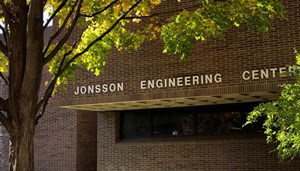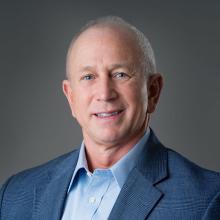
Engineering a Better World
We will start with Corning first. Tell us about Corning and about your role there. You are a successful engineer, manager, thinker, and a leader. Tell us a bit about what you do, how you do it, and how it impacts people/society. How do you inspire people? How do you get teams to solve hard problems?
My title at Corning is Senior Vice President and Chief Engineer. I’m grateful to lead an engineering organization in a Fortune 500 company that’s been in existence for more than 170 years. In my role, I am responsible for the global engineering organization which supports all of Corning’s businesses and ensuring that the engineering function is prepared to execute on the current and future needs of the corporation. In my 35+ year career at Corning, I have been involved with so many exciting products that have come to market. I have also been part of many amazing teams that grew together, had fun together, and even cried tears of joy together in delivering on what felt like very challenging programs over the years. One of the things I have learned over the years is how important it is to be able to motivate a team. It sounds easy, yet it can be one of the most difficult things we do in engineering. I’ve also learned that none of the toughest problems, especially the advanced ones, are solved by one person. It takes a high-performing team to solve tough problems. One of the most important things I can tell an engineer is to understand this, and embrace it early on in their career; once they do this, they are much more likely to be successful in whatever direction their career goes.
Did the Rensselaer education prepare you for all this success? How? What do you think distinguishes Rensselaer?
A bit of background on my family as I reflect on my education at Rensselaer. I came to Rensselaer through a 3-2 program from Oneonta State University. I attended Oneonta State with two of my brothers, one older and one younger, who were also in the 3-2 program. I studied physics, while they studied mathematics. My brothers then went on to Massachusetts Institute of Technology as part of the 3-2 program and majored in mechanical engineering, while I went on to Rensselaer to study civil engineering. When I got to Rensselaer, I joined my older brother John, who was studying biomedical and electrical engineering. And so, the story of two at RPI and two at MIT for the Capek boys was being written – We will leave the rest of that story for a competition between two great engineering universities! My time at Rensselaer was amazing. I was challenged from the first day I showed up, to the last exam I took. I love a challenge, and Rensselaer was doing what I had hoped for – it made me a well-rounded engineer in my studies and prepared me for always being up for a challenge!
We want to understand your journey. Tell us a bit about yourself: where you grew up, attended school, about your background before coming to Rensselaer.
The Capek family is from a small town in upstate New York, Saint Johnsville. We grew up on a farm where we were taught early on that you needed to work hard and take care of one another. We were also taught how to solve problems – basically how to be an engineer by working with your hands and being creative in how those problems were solved.
You are a civil engineer, yet you work at the leading edge of the advanced materials revolution at Corning. Does that mean engineers can do almost anything they put their minds to?
My first three years at Corning were all about being a civil engineer, and I loved that work. During those years, I was able to work around some amazing processes and technologies that sparked an interest in me. So, I decided to continue my education, this time at an amazing technology company. For the next decade, I dedicated my studies at work to advancing my skills and knowledge of glass making. Glass is an amazing material that I learned about and worked with from the lab to the factory floor. When we put our mind to it, and more importantly our heart into it, it is amazing what we can do. Rensselaer prepared me for this challenge by giving me the foundation I needed for a technical education that I have built upon to become a lifelong learner.
What was your Rensselaer experience like in the 1980s? Did you notice dramatic differences from then to when your daughter recently attended RPI?
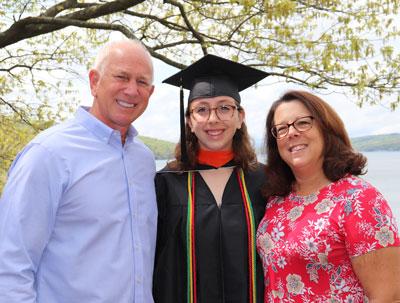
What a difference 30 years makes! While the foundation is the same since students receive a strong technical education, the methods we use to train/educate engineers and future technical leaders has changed so they can be more successful in their careers in the long-term. Technical breadth and depth are critical, but so is the ability to be creative in what we do, how we do it, and most importantly being able to apply it to real-world problems that can be implemented from the lab to the manufacturing plant.
An engineer that can conceptualize an idea (the invention) and take that idea to a reality (the execution) is priceless. Inventing and making are both required and engineers need to be involved from the beginning from idea generation, and the ability to go to the field and make it work.
I have been very impressed with the education my daughter, Madison Capek (Class of 2020 – Biomedical) received. She is a well-rounded engineer who can conceptualize an idea and take that idea all the way to making it a reality in a manufacturing environment. She loved her time at Rensselaer and she grew tremendously as an engineer and also as a leader.
Is there a specific memory from your RPI days that you wish to share (something that connects you to Rensselaer)?
A special memory, meeting my wife, Lisa. Lisa was studying to be an elementary school teacher at Russell Sage College and our paths crossed late one night. There was a bet about if she would dance with me; I won that bet and the rest is history. That story has been told so many times to our friends and kids. We have been married for 35 years.
Another great memory is the year we were 1985 NCAA Hockey Div. 1 Champions! What a year to attend RPI! And to have been in school during this time with my brother, John was a memory that will last a lifetime.
Philanthropy, especially in diversity, equity, and inclusion, is important to you, your family, and Corning. You support Rensselaer strongly. You also contribute your time generously on the SoE Council. Please tell us about what motivates you to give back, and what do you want us to achieve together?
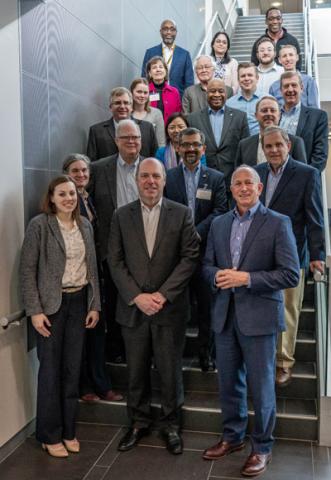
Our time, talent, and treasures are what we give back. The time I spend on campus with students and faculty is very rewarding to me. It is a two-way street. Sharing and learning. I am energized by these conversations. As Chief Engineer for Corning, I spend a lot of time recruiting engineers and with this in mind I spend a lot of time talking with students and professors about what it means to be an engineer and what universities need to do to train engineers.
It has been my experience that a workplace (business or university) that respects an individual’s unique needs, perspectives, and the potential of all team members, creates deeper trust, and, ultimately, more commitment from those in the organization. Finding strength and unity in our differences helps to build a more inclusive culture and helps everyone reach peak performance. An organization full of individuals who are able to achieve peak performance is ultimately more productive and delivers great impact, which leads to a greater competitive advantage. This is true at a university or a company.
Ultimately, the goal of diversity, equity, and inclusion programs is to create a workplace where all employees have the opportunity to participate fully and grow to their highest potential. Our workplaces today are more diverse and globally connected than ever before and our technologies and business environment more dynamic than ever before. As leaders, we must tap into the collective intelligence and experiences of every person in our organization. The organizations that harness the ability to benefit from the empathy, passion, and creativity of all of their people will realize their full potential, will be more agile, inventive, and ready to face any challenge that comes their way.
What do you do for fun? Hobbies? Favorite books, blogs, podcasts? Travel destinations?
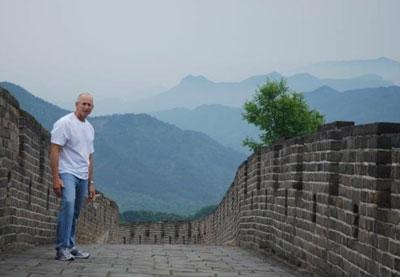
For fun, I love the outdoors and fixing anything and everything that needs repairing or replacing at the house. A great weekend is many trips to the hardware store to buy a new tool to fix something which is something that I likely broke so I could go to the store to get a new tool. I also love traveling, although much of my travel has been for work. I have taken so many trips to Asia for work that I have lost count. My most memorable destinations so far are: climbing Mount Fuji, biking and walking on Great Wall of China, going to the Olympics in Seoul South Korea, and touring the Taj Mahal in India.
What is your message to current Rensselaer students?
You have so much ahead of you and there is so much you can and will do with a Rensselaer education.
